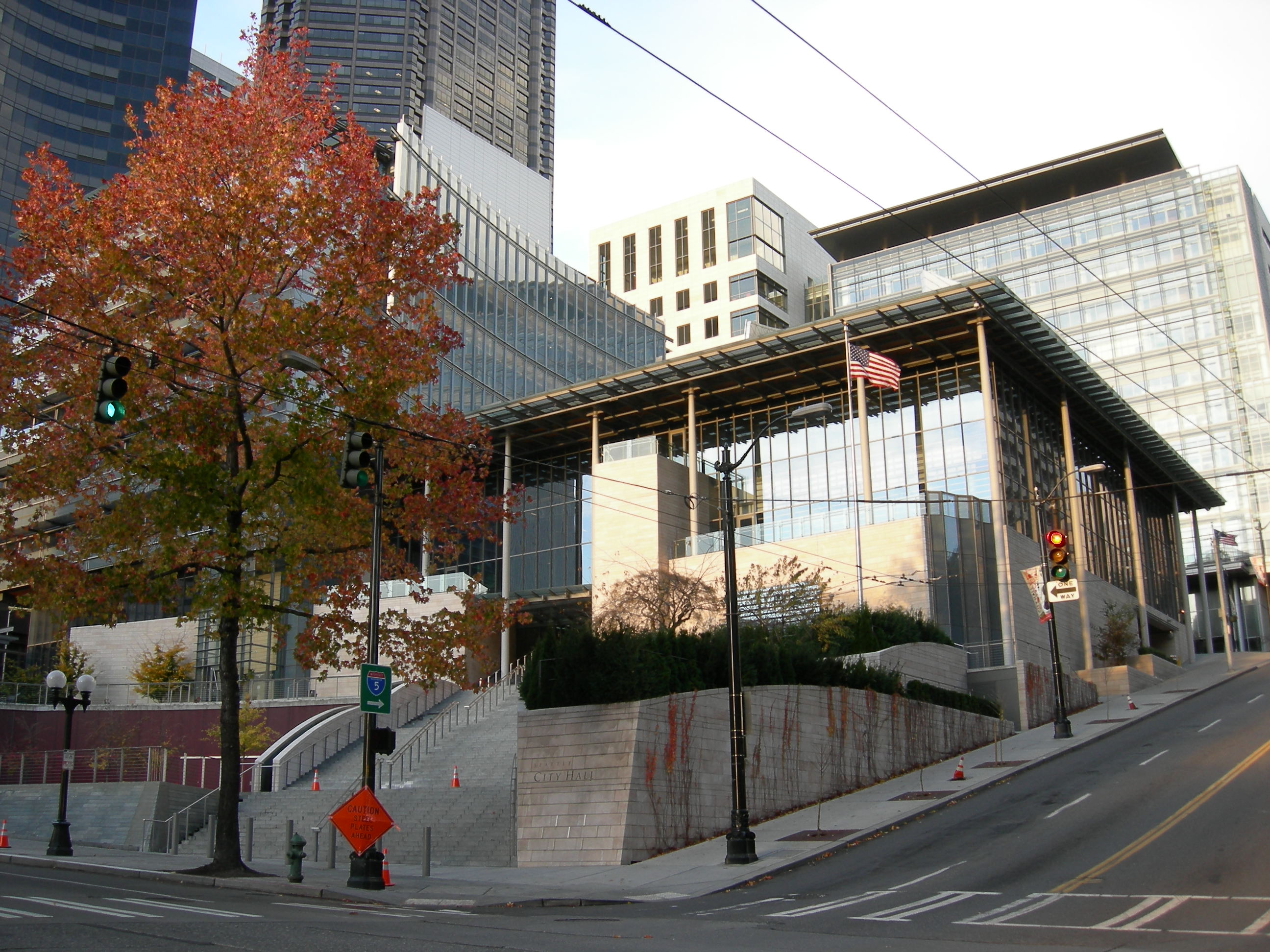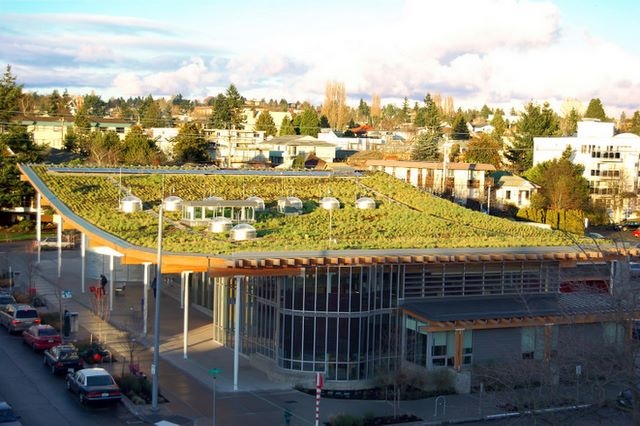Green Building Practices (part one)
July 9th, 2007
Podcast: Download (Duration: 35:15 — 40.3MB)
Green Architects Craig Curtis, Mike Jobes and Brad Pease
We may on the verge of a new golden age of public buildings and architecture, as cities and governments recognize the value in building green. The surprising thing is it’s not just good for the local environment, or even aesthetically unique or pleasing – there’s also real science that demonstrates building green is cost-effective and keeps long-term operating costs down.
Cows On the Roof
If you’re a Seattle resident, you may have noticed grass growing out of the roof of the new library in Ballard. You may have also wondered what the EMP building might be used for should Paul Allen’s Experience Music Project ever vacate the premises.
Maybe you’ve heard the term “sustainable building practices” thrown around at parties and hipster gatherings, but what does it mean? What is “green building,” what is LEED, and how does it benefit the bottom line for clients of architectural firms?
Turns out, with all things green being hip these days, a lot of companies are coming to firms which specialize in green construction because building green is ultimately cost-effective and keeps long-term operating costs down.
Seattle-area architects Craig Curtis and Mike Jobes from the Miller/Hull Parntership and Brad Pease from Paladino and Company Green Building Strategies, all pioneering green building with their respective firms, come together on a special “green building” Treehuggers International panel.
Join us as our panel talks about the future of green architecture, city planning, European space vs. city models, modular buildings, smaller building “footprints,” and related environmental topics.
We’ll also have a laugh or two at the expense of the EMP Building. We’re confident Paul Allen will get over it.

Seattle’s new LEED-certified city hall is representative of the city’s commitment to green building.





